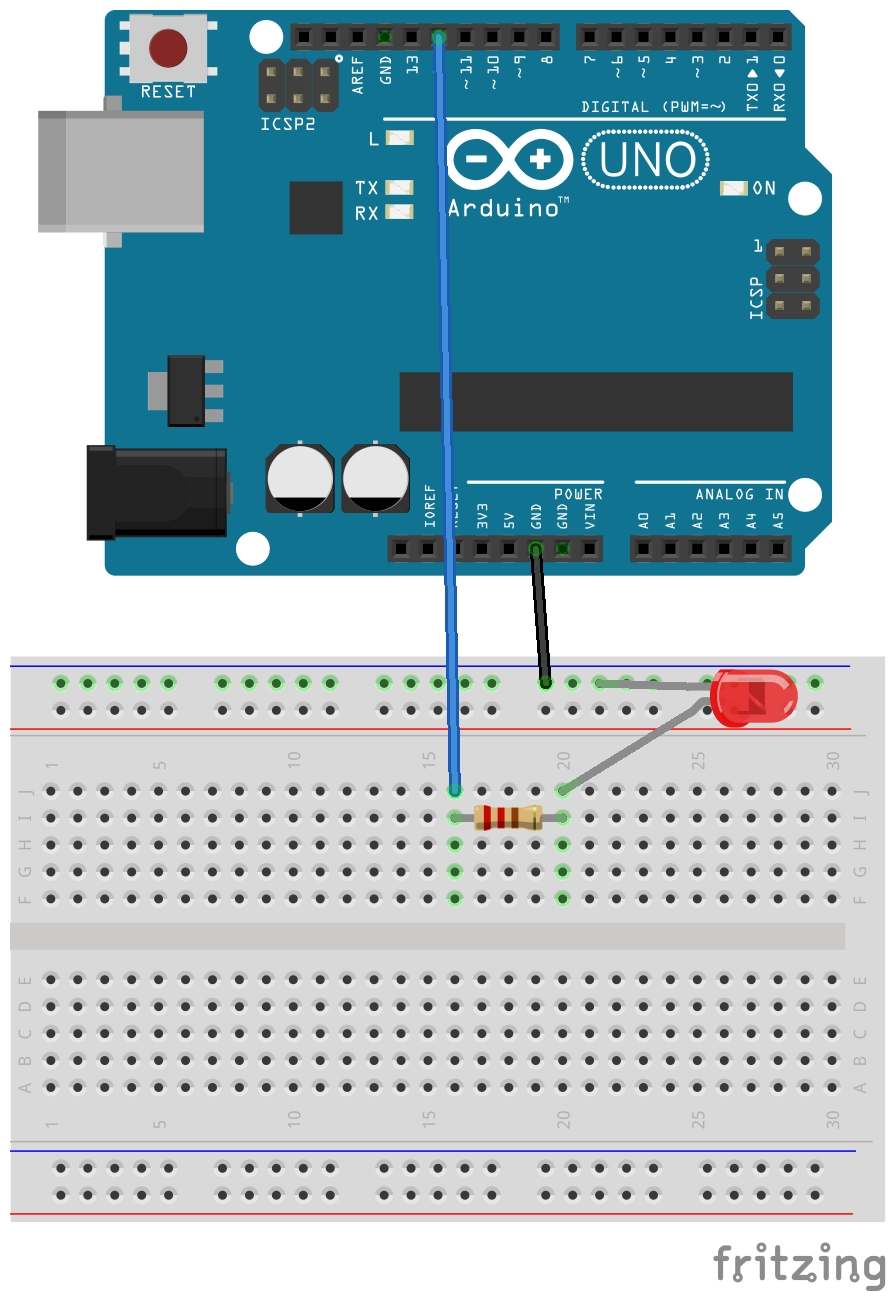A Fritzing diagram is a picture representation of what the circuit should look like, similar to the open, closed and short circuit diagrams previously shown in this chapter; however, the Fritzing diagram has standard symbols to represent each part and a compact design making it easier to design more complex circuits. The following Fritzing diagram shows an Arduino connected to a LED and resistor on a breadboard:

The circuit in this diagram starts with the Arduino GND pin, which is connected to the top rail of the breadboard. The cathode connector of the LED is also connected to the top rail, which connects it to the common ground from the Arduino. The anode connector of the LED is connected to a 220 Ohm resistor, which is connected to the digital 12 pin of the Arduino. This is a pretty easy diagram to understand because the diagrams look like the components...



























































